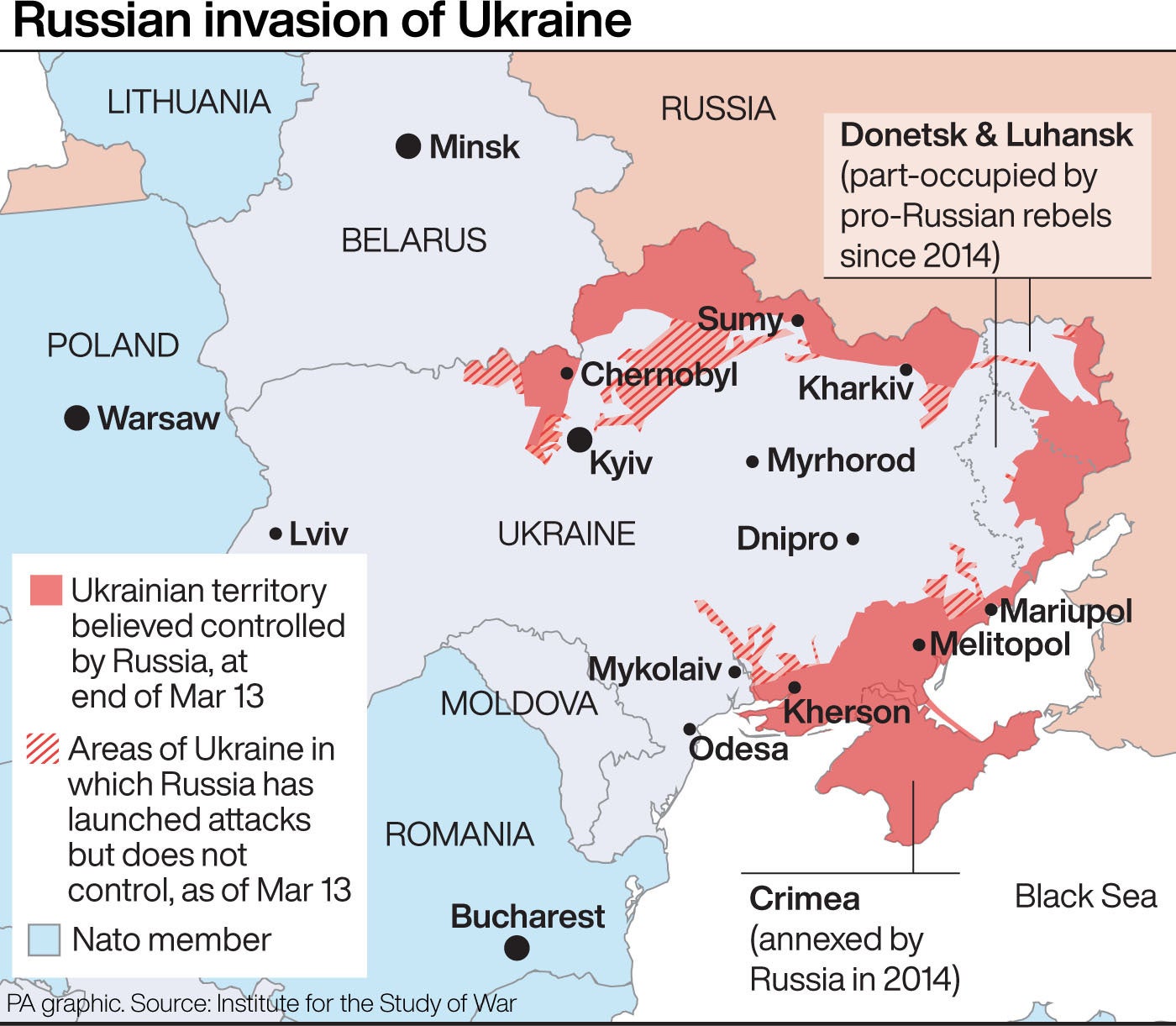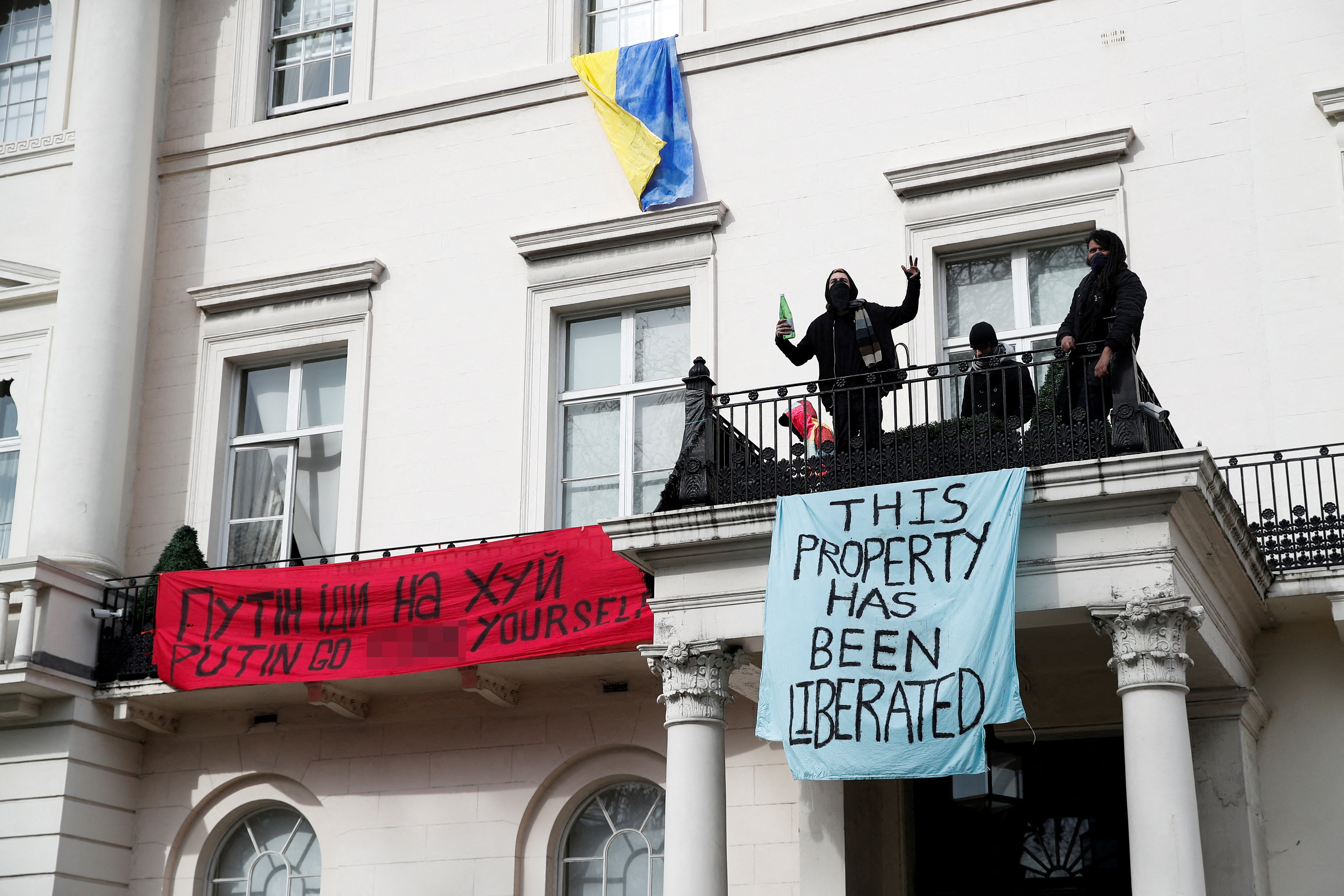‘The west hates us’: How sanctions are strengthening support for Putin among some Russians
Exclusive: Activists say sanctions are pushing more people to support Moscow’s invasion. Charlene Rodrigues talks to Russians to see how anti-west sentiment is hardening


Weeks after the west imposed a string of economic sanctions on Russia, the price of Ekaterina Dostoevskaya’s* contact lenses went up by 50 per cent (from 1,200 to 1,800 roubles – or £9.50 to £14.40).
“I have been wearing contact lenses since I was 13, and I cannot wear glasses,” Ms Dostoevskaya told The Independent about her medical condition via encrypted messaging from Nizhny Novgorod in western Russia, unsure if she can afford them.
Since Russia’s invasion of Ukraine, more than 300 companies, including well-known billion-dollar brands such as McDonald’s and Shell, have suspended or withdrawn operations in the country. Some companies, however, still remain.
President Putin has responded by saying western sanctions would not hinder development and that Russia would end up stronger. But questions have surfaced about how the sanctions intended for Russia’s elite are impacting ordinary Russian families.
Ms Dostoevskaya, denouncing Putin’s actions, said the corporations that leave Russia need to get off their high horse. “Such sanctions will not bring people to the streets,” she told The Independent.
The bigger fallout from the sanctions, besides the economic hurt, has been the rise of disinformation campaigns across the country that have turned even centrist Russians against the west.
“The west hates us,” said Ms Galina Bulgakova in Volgograd in southwestern Russia. “We are just protecting our border from Nato and saving innocent Ukrainian people,” she says, with her Ukrainian partner who also believes that “Russia is helping Ukraine, not fighting”.
So far, Ms Dostoevskaya said the economic sanctions have not convinced people that Russia is an aggressor in this war; instead, she said it has empowered state propaganda to portray Russia as a victim of “Nato’s and USA’s” plans.
She fears propagandists are using the sanctions as an excuse to dismiss the many Russians opposing the war as “foreign agents” on “Nato’s paycheck”.

The rise in state terror is pronounced. Russian police have been harassing Ms Dostoevskaya at home, at work and forced her to sign a paper saying she will not attend anti-war protests. She was fined 10,000 roubles (£70) and forced to undress and squat while in detention. Her 13-year-old brother was interrogated at home alone.
“We later learned that this was unnecessary and against the law,” Ms Dostoevskaya said, who is under constant close surveillance.
The anti-war protesters The Independent spoke to, said that all over the country people are being arrested, detained and tortured in police stations. To obscure the torture marks, women are beaten with plastic bottles filled with water and hit with chairs.
Ms Katya Bulgakova (Galina’s daughter), working in London, thinks Russians have become more nationalistic after the sanctions intensified. “It’s like putting oil into the fire of the nationalist sentiment,” she said.
Kremlin propaganda invoking Second World War sentiments are rife, she said. The messaging includes: “Our [Russia’s] war heroes protected us from the Nazis”, “The west hates us, we told you” and “Ukrainians have Nazi ambitions and are trying to destroy us”.

The sanctions mean older Russians are rejoicing at becoming more self-reliant, less consumeristic and less western, said Ms Katya. “There is a lot of hate towards people who oppose the war. Bloggers and influencers are going to jail, fleeing the country or have been silenced into not sharing any ideas,” she said. “It’s heartbreaking.”
After the Russian tricolour flag replaced the Soviet hammer and sickle in the Kremlin in the 1990s, the first decade of transition from a centrally-planned economy to a market economy was disastrous.
During this time, Ms Bulgakova vividly recalled life without heating, water, food and supplies while raising her three children. She was in Kazakhstan but fled to Russia. Ms Bulgakova said the only way to make ends meet was through bartering, and she fears its return. “We made products and exchanged them with other people − for example, alcohol substances,” she recalled.
She stocked her cupboards with commodities like rice, sugar, flour for up to a year fearing a price hike. Sugar and bread are up by 40 per cent. Basic commodity prices vary across Russia; the north is more expensive than the south.
With support from her daughter Ms Katya, she helped her son flee to Dubai to avoid conscription in the Russian army. A one-way ticket from Moscow cost six times higher (£700) than the original price and took him 36 hours instead of six.
Ms Dostoevskaya said prices have been rising since 2014 when the first sanctions were imposed on Russia after its annexation of Crimea. Even before its invasion of Ukraine, Russia was already trying to become food sufficient at home following sanctions it had placed on the EU in 2014.

Growing up in Crimea, artist Igor Suskin didn’t drink Coca-Cola or eat McDonald’s. “Life was good without it. As for the sanctions on Russia, we are only glad as they make us stronger,” Mr Suskin said, having lived through the Nineties.
A Putin supporter, Mr Suskin said Russia could not tolerate the US and its allies’ behaviour. “Ukraine has become a hostage of their aggressive policy,” he said, pointing out that the images of Russians queuing at cash machines are “fake”.
Dr Adnan Vatansever at King’s College London’s Russia Institute said sanctions will trigger a level of economic contraction unseen since 1998. “This is significant because Putin’s social contract has been based on delivering a general sense of macroeconomic stability,” he told The Independent.
While the economic impact of the sanctions is likely to weaken the foundations of public support for Putin, and possibly his cronies, Dr Vatansever said it is hard to determine if this will mean a regime change.
Ms Dostoevskaya said sanctions on the oligarchs, in theory, might be more efficient. Still, “it will take months to implement and even longer to take effect. Ordinary Russians will suffer in the meantime,” she said.
“One area to watch is whether the west will associate a potential removal of sanctions with a regime change in Russia. Such a move would turn Putin into a liability for a big part of the Russian elite as well as the public,” Dr Vatansever added.

Ms Katya and Ms Dostoevskaya are desperate to support friends and relatives in Ukraine but have to use fake names and identification for fear of being caught and punished by the Russian authorities. Ms Dostoevskaya wants Putin dead.
“Right now me and many other people believe that this is the only way to stop what is happening,” she said. “A trial at The Hague would be great, but from where we stand it looks a bit utopian.”
* Some names have been changed to protect the identities of contributors across Russia
The Independent has a proud history of campaigning for the rights of the most vulnerable, and we first ran our Refugees Welcome campaign during the war in Syria in 2015. Now, as we renew our campaign and launch this petition in the wake of the unfolding Ukrainian crisis, we are calling on the government to go further and faster to ensure help is delivered. To find out more about our Refugees Welcome campaign, click here. To sign the petition click here. If you would like to donate then please click here for our GoFundMe page.
Join our commenting forum
Join thought-provoking conversations, follow other Independent readers and see their replies
Comments